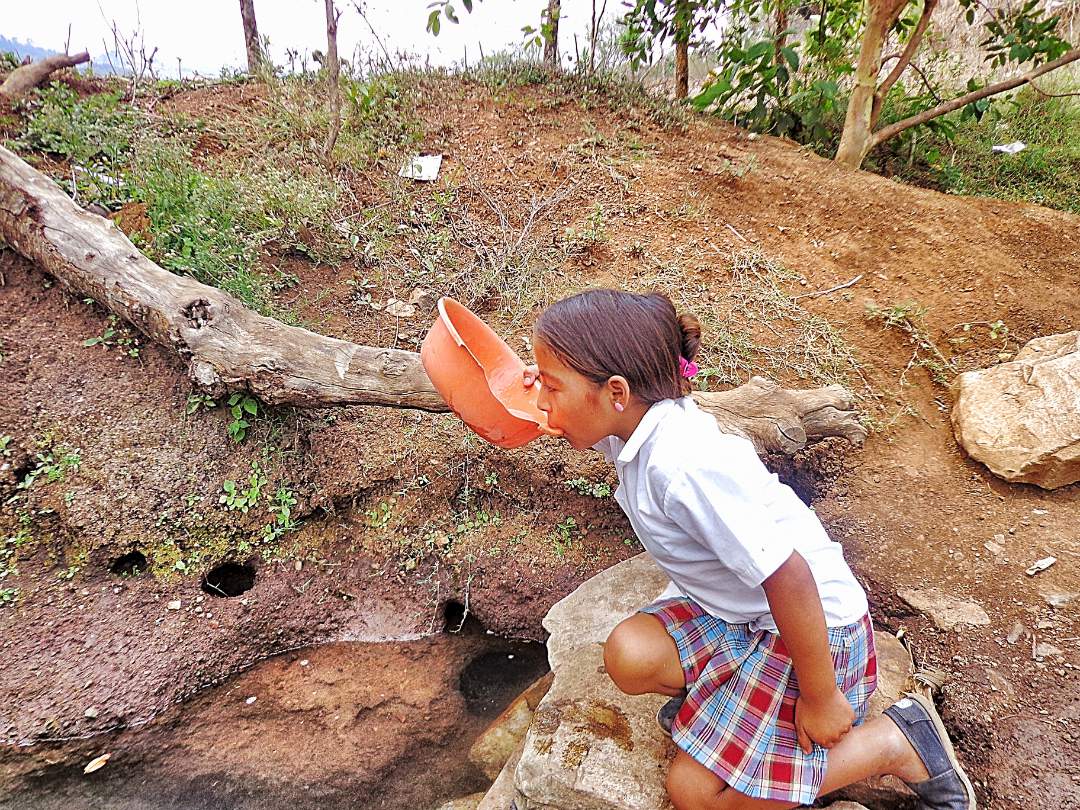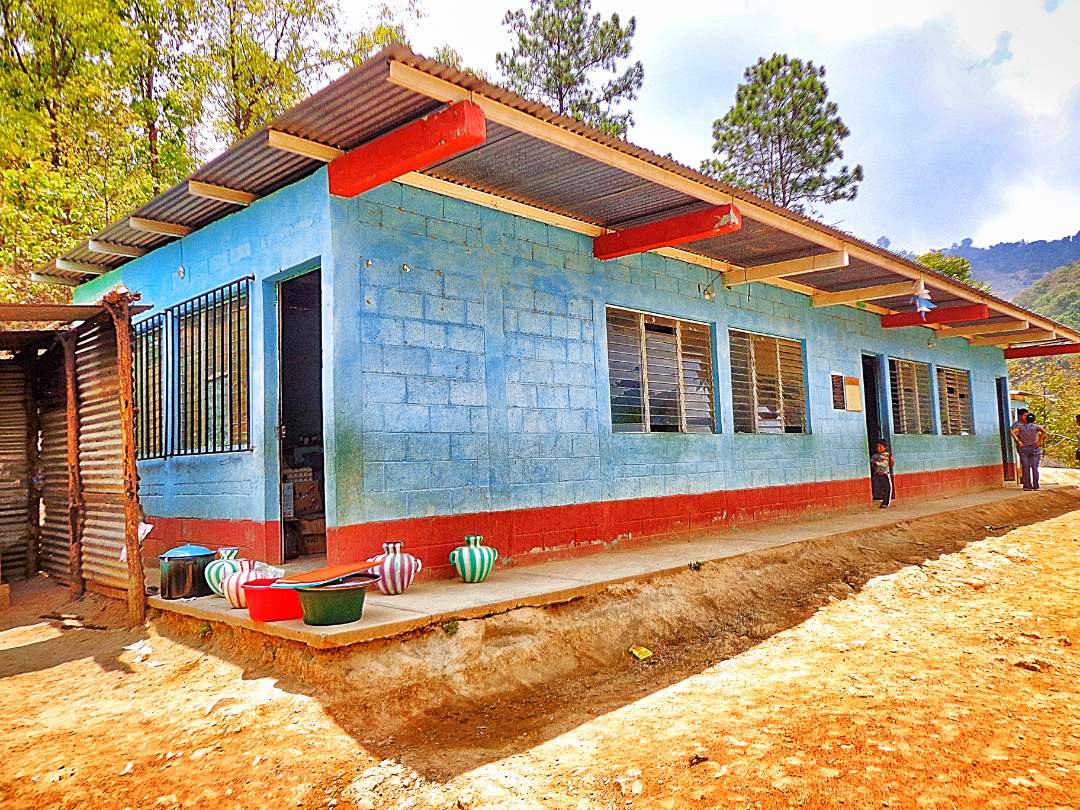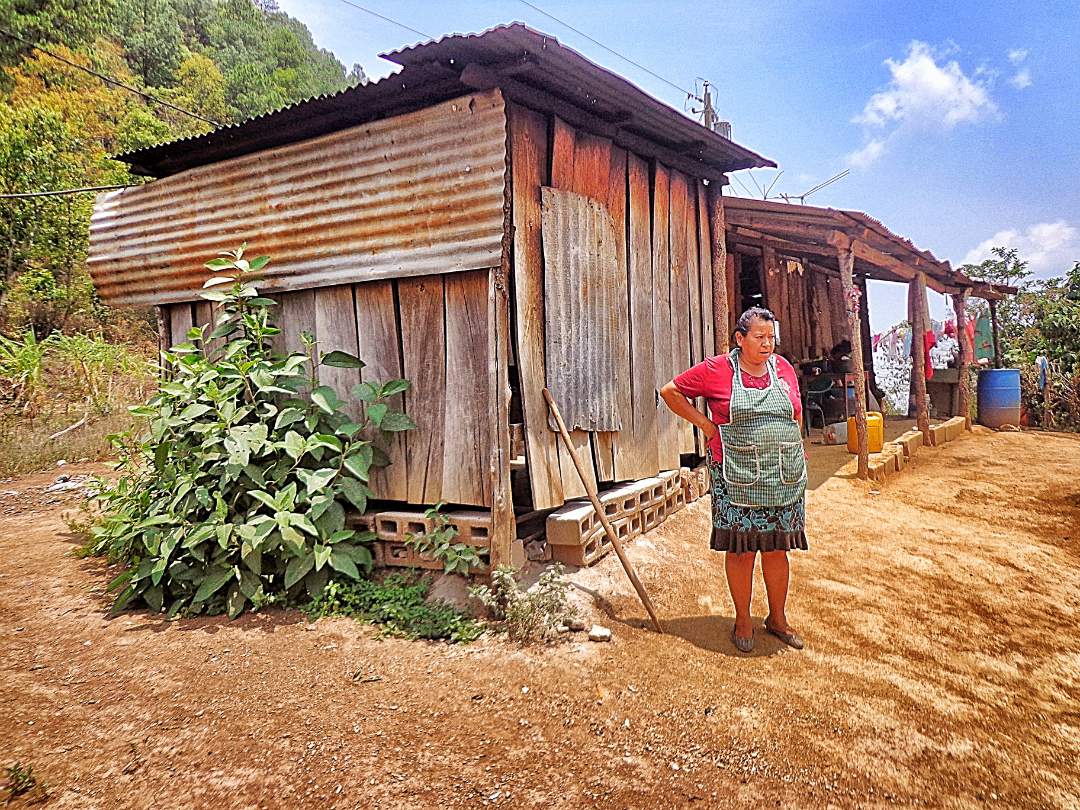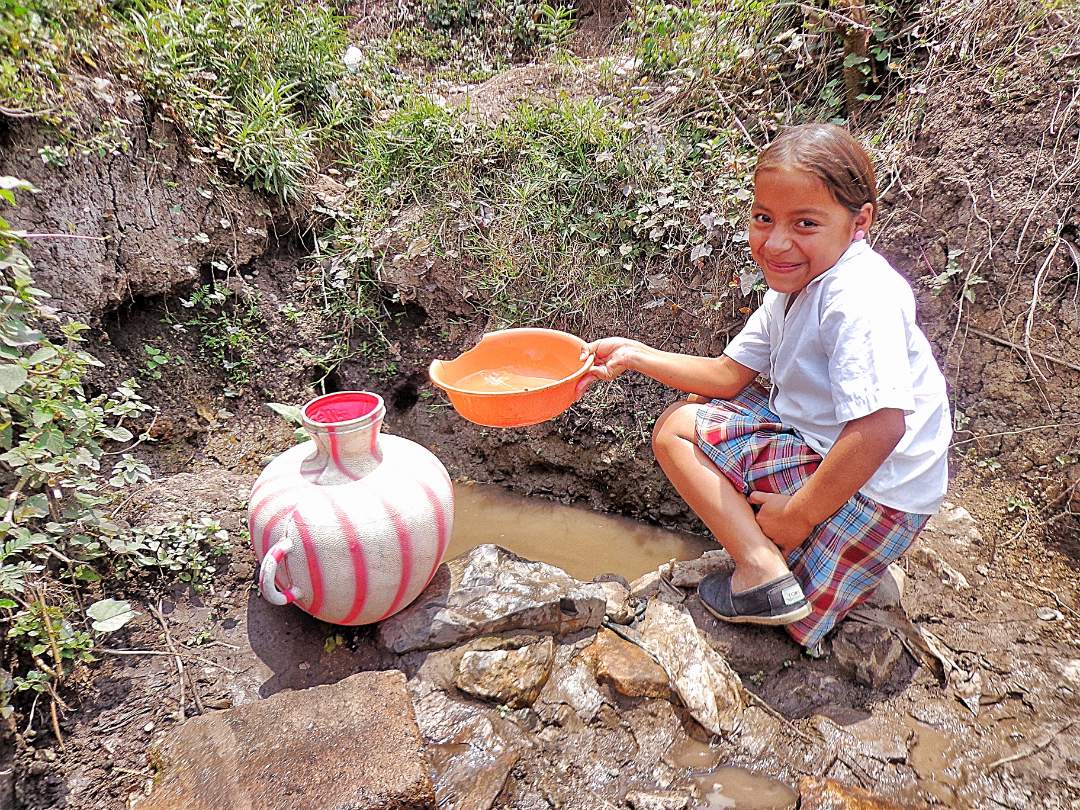This project is made possible through the partnership of WATER CHARITY and the NATIONAL PEACE CORPS ASSOCIATION. 
Location
Potrero Grande, Marillanos, Tecomates, Joyas, Chorritos, Bejucalito, Anonos,Triunfo,Volcancito, El Esfuerzo, and Veracruz communities, Guatemala
To see the villages on a map, CLICK HERE.
Community Description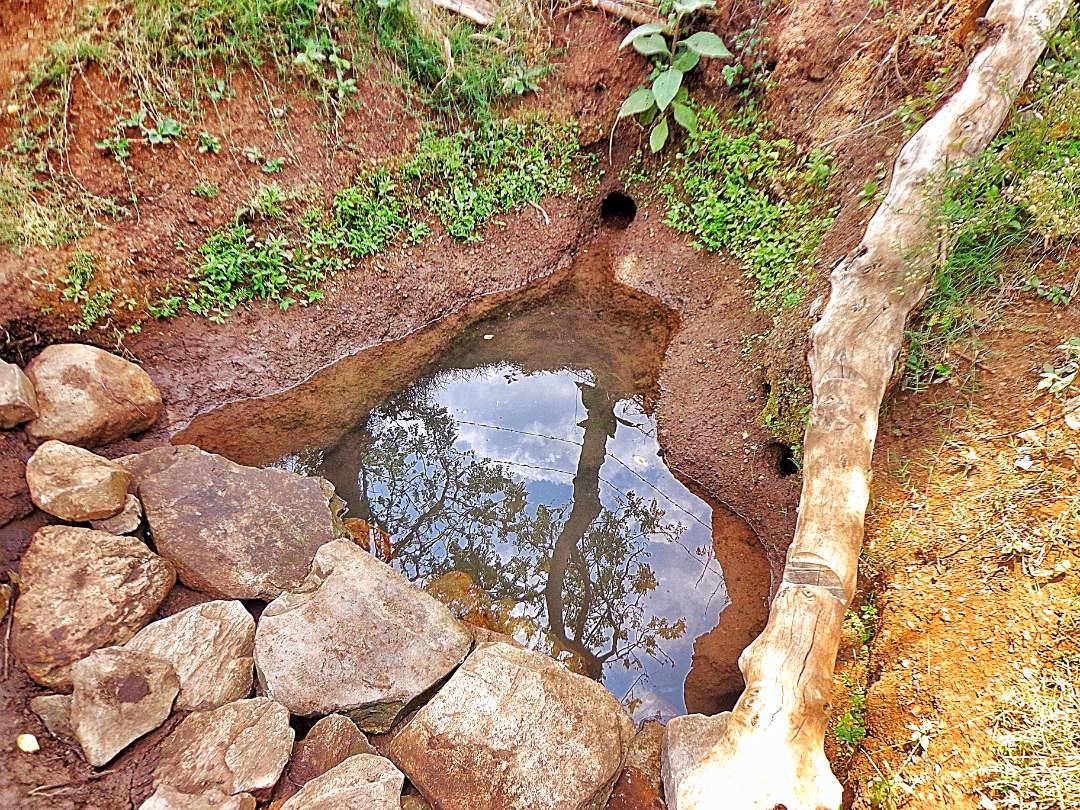 The communities in this project are located in two municipalities: Palencia and San Juan Bautista (Suchitepéquez). While the communities are spread out geographically, they have many social and economic factors in common. They are rural communities, where the majority of families live in adobe homes with limited access to water or electricity. These are agricultural communities where many adults never graduated from primary school, instead working in the fields from a very young age. Some of this generation’s children are the first in their family to attend secondary school, although few do.
The communities in this project are located in two municipalities: Palencia and San Juan Bautista (Suchitepéquez). While the communities are spread out geographically, they have many social and economic factors in common. They are rural communities, where the majority of families live in adobe homes with limited access to water or electricity. These are agricultural communities where many adults never graduated from primary school, instead working in the fields from a very young age. Some of this generation’s children are the first in their family to attend secondary school, although few do.
While the majority of these communities have a communal water source, it is often drawn straight from a well, spring or river and is contaminated. Water must be boiled, chlorinated or filtered before use; but because of the time and cost involved, these methods are not commonly practiced. Through informal conversations with community health workers, we know that the number one illness for which families seek treatment in these communities is diarrhea.
Problem Addressed
Access to clean water is a common problem in Guatemala, as in many developing countries around the world. UNICEF reports that diarrhea is the second leading cause of death in children under 5 around the world, and that 6% of deaths each year in children under 5 years in Guatemala are due to diarrhea.
 Access to improved water sources and to improved sanitation have increased in Guatemala over the past few decades. The country is now seen to be “on track” to meet the Millennium Development Goals 2000 – 2015 (MDG 2000 – 2015) water and sanitation targets, but rural areas still lag behind. As of 2012, 89% of the rural population has access to an improved water source, while 99% of urban populations do; the other 11% of rural populations still rely entirely on unprotected, or surface water sources such as open springs or rivers.
Access to improved water sources and to improved sanitation have increased in Guatemala over the past few decades. The country is now seen to be “on track” to meet the Millennium Development Goals 2000 – 2015 (MDG 2000 – 2015) water and sanitation targets, but rural areas still lag behind. As of 2012, 89% of the rural population has access to an improved water source, while 99% of urban populations do; the other 11% of rural populations still rely entirely on unprotected, or surface water sources such as open springs or rivers.
This is the case in El Volcancito, Palencia and El Esfuerzo, Suchitepéquez where community members carry water from uncovered springs where water gathers in an open pit in the ground, leaving it exposed to contamination. The rural/urban disparity is not unusual in the developing world; but points to an opportunity to increase investment in clean water in rural communities.
Of the 11 communities listed here, 5 child-feeding centers (45%) do not have an improved water source. Furthermore, even when an “improved” water source does exist in Guatemala, it is often still contaminated and likely to make people sick. This is more so the case with travelers and children, whose immune systems are not used to the local microbes, but waterborne pathogens put a strain on everyone’s health.
Project Description
With support from Water Charity, Feed the Children, Inc. will distribute 50 Sawyer filters in 10 different high-need rural communities, focusing on areas with high concentrations of children such as schools, community feeding centers, and health centers. In each location, Feed the Children, Inc. will either identify an existing water committee or form a new one to take ongoing responsibility for the use and maintenance of the filters. Feed the Children, Inc. will train the committee on the simple maintenance procedure to keep the filters in optimal condition; and with the committee, carry out a series of educational activities using songs, stories and drama to teach the local target population about the importance of drinking clean water. (These educational activities will be adapted from the Peace Corps’ “Healthy Schools” curriculum, developed and extensively field-tested by volunteers in Guatemala.)
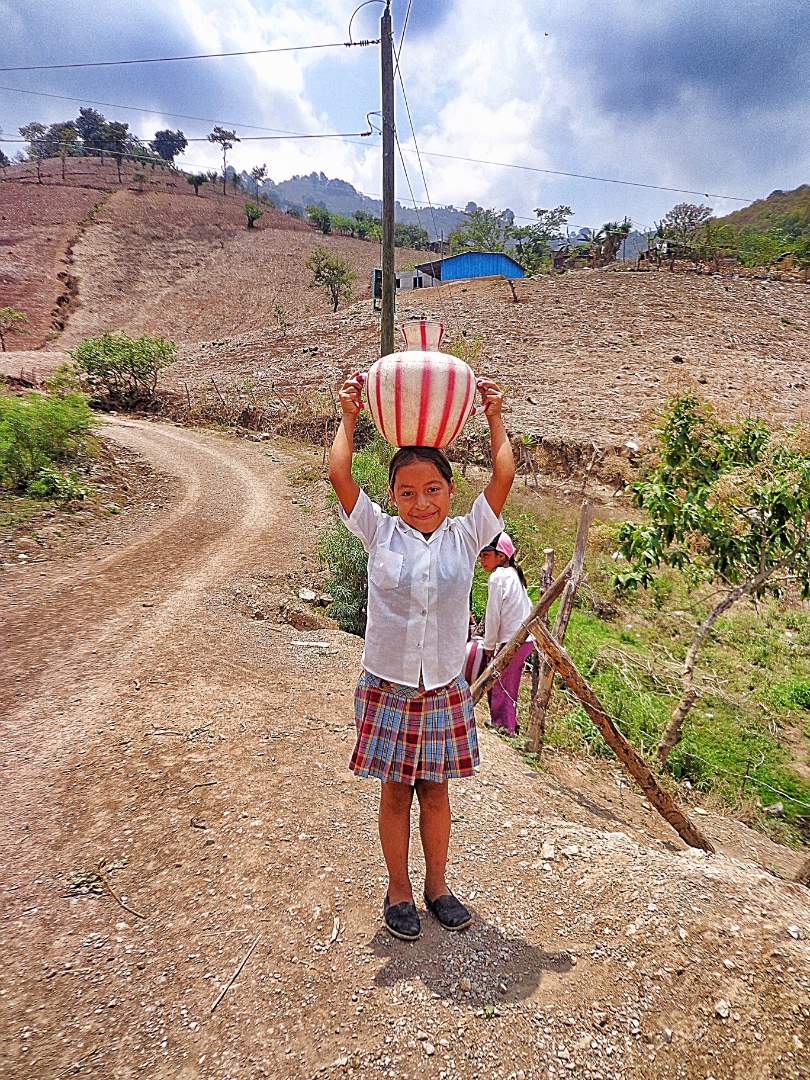 Water Charity has worked extensively with these Sawyer filters, and has even created an entire worldwide program to help distribute, install, and train people in their use. This project is part of this larger worldwide program.
Water Charity has worked extensively with these Sawyer filters, and has even created an entire worldwide program to help distribute, install, and train people in their use. This project is part of this larger worldwide program.
The carbon nano-tube technology used in these filters has proven extremely effective and long-lasting. It has its roots in kidney dialysis machines, and the filters are engineered to have no holes larger than .1 microns… thus eliminating the possibility of any microbes passing through. These filters are guaranteed for one million gallons of clean water, with a very high flow-through rate. In practice, the filters can last much longer with only a bit of rudimentary care, back-flushing them with a syringe-like tool when they get clogged with sediment.
Project Impact
This project will impact approximately 3,850 people, primarily children.
Returned Peace Corps Volunteer Directing Point
Claire Mocha (who began working with FTC after serving as a PCV in Guatemala for 2 years)
Monitoring and Maintenance
Feed the Children, Inc. has an ongoing presence in each community, visiting at least twice a month. Our field staff will train a group of responsible persons in each community to oversee the proper use and maintenance of the filters. In schools, this will likely be the existing cleaning committee of teachers and parents who already oversee the cleanliness of school grounds and facilities; in the feeding centers, several volunteer mothers will be chosen to be responsible for the filters. Sawyer Point ONE filters require very little in the way of maintenance, and have an average lifespan of up to 10 years; but Feed the Children, Inc. staff will be visiting the sites regularly to ensure that the filters are functional and being utilized.
Comments
Feed the Children, Inc. is partnering with teachers and parent committees in all of these communities, and the filters supplied by Water Charity will be installed in locations where FTC is already established with food programs and education.
This project falls under our Filters For Life Program – Worldwide.
Dollar Amount of Project
$2,500
Donations Collected to Date
$2,500
Dollar Amount Needed
$0 – This project has been fully funded through the generosity of Michael and Carla Boyle, of Nelsonville, OH, USA.
